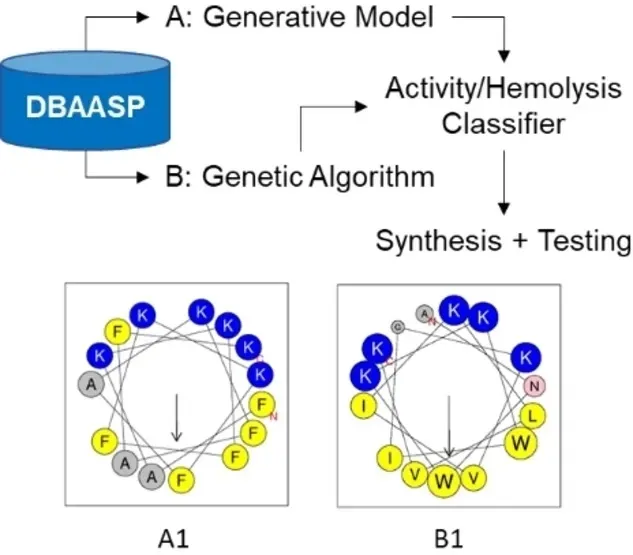Machine Learning Guided Discovery of Non-Hemolytic Membrane Disruptive Anticancer Peptides

Our paper Machine Learning Guided Discovery of Non-Hemolytic Membrane Disruptive Anticancer Peptides is now published in ChemMedChem!
Abstract:
Most antimicrobial peptides (AMPs) and anticancer peptides (ACPs) fold into membrane disruptive cationic amphiphilic α-helices, many of which are however also unpredictably hemolytic and toxic. Here we exploited the ability of recurrent neural networks (RNN) to distinguish active from inactive and non-hemolytic from hemolytic AMPs and ACPs to discover new non-hemolytic ACPs. Our discovery pipeline involved: 1) sequence generation using either a generative RNN or a genetic algorithm, 2) RNN classification for activity and hemolysis, 3) selection for sequence novelty, helicity and amphiphilicity, and 4) synthesis and testing. Experimental evaluation of thirty-three peptides resulted in eleven active ACPs, four of which were non-hemolytic, with properties resembling those of the natural ACP lasioglossin III. These experiments show the first example of direct machine learning guided discovery of non-hemolytic ACPs.
Author(s): Elena Zakharova, Markus Orsi, Alice Capecchi and Jean-Louis Reymond